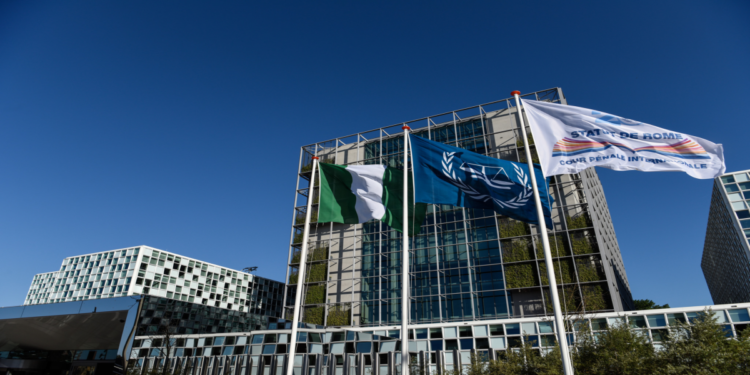By Journalists For Justice (JFJ)
This year is the 20th anniversary of the Rome Statute which resulted in the creation of the International Criminal Court (ICC) based here in The Hague. It also marks the creation of a permanent office for Journalists For Justice (JFJ) in The Hague. JFJ is dedicated to providing the means for journalists from all of those countries involved in cases at the ICC to report on proceedings to those back home.
DutchbuzZ, the only English language radio programme in The Hague, was recently at a gathering of African journalists organised by JFJ and spoke with Hague representative Thomas Verfuss and the visiting head of the Nairobi office Kwamchetsi Makokha. Here is a transcript of the interview they gave to DutchbuzZ. The interview has been edited slightly for clarity.
Thomas Verfuss: Journalists For Justice invited a group of seven journalists from Ivory Coast to follow a crucial phase of the trial againstthe former President Laurent Gbagbo. The ICC itself invited a group ofUgandan journalists for a crucial phase of the defence case of Dominic Ongwen a former rebel leader in Northern Uganda. Journalists from the countries concernedshould have the opportunity to be in The Hague more often. The problem is funding because the ICCdeals with war-torn countries whichmeans that those countries are often poor and the press in thosecountries won’t have the necessaryfunding to come to The Hague and stay in this expensive city.
These issues were discussed at the gathering with the journalists. We also discussed the issues of the security of journalists because if you write about the ICC where sometimes cases are brought against presidents, former presidents, high military leaders and if you report about them then there may be people who don’t like it, especially if they are powerful. Journalists have to face threats and intimidation. We have even heard about journalists being killed in situation countries.
DutchbuzZ: How would like to see JFJ developing in the future?
Thomas Verfuss: I would like to see that we have a role advising journalists about reporting objectively about the ICC.
DutchbuzZ: What is the importance of creating a connection between The Hague, the ICC and the journalist who live and work in Africa?
Kwamchetsi Makokha: Journalists For Justiceworks toincrease and improve public discourse on international criminal justice. The Hague is known the world over as thecity of justice, as a city of peace. The city is a very important source ofopinions and views on justice. We areinterested in connecting those views andthat expertise with where, if you like, where the rubber meets the road or whereinternational criminal justice is in application on the African continent. We are trying to help journalists tomediate the conversation aroundpublic discourse on international criminal justice in Africa
DutchbuzZ: Obviously there has been quite a bit of debate recently about the role of the ICC. Coming from Africa, where the ICC has had a number of cases, how do you feel the African people view the ICC? What is your sense being based in Nairobi?
Kwamchetsi Makokha: One is at this a dearth ofinformation and sometimesmisunderstanding because informationhas not flowed as fast as it should. There are alsogaps in media capacity and ability. Because of that the ICC story has notbeen very well told in the African context. That is one of the things that Journalists For Justiceis trying to redressespecially in ICC situation countriesto explain what the court can do, what it cannot do, manage expectationsbut also enable people to also discuss otherjustice options because the ICC isonly the icing on the cake, theygo after the perpetrators with the highest responsibility.
But there are also mid-level perpetrators and there are lower level perpetrators and the conversation about justice must be deepened beyond the ICC’s. It is a wholly organic conversation that must start at The Hague but also end in villages.
DutchbuzZ is the only English language radio programme in The Hague, city of peace and justice.
soundcloud.com/jf-justice/the-icc-story-has-not-been-very-well-told-in-the-african-context







